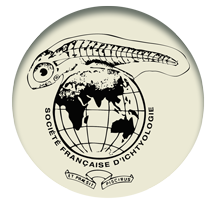IUCN Red List – Freshwater fish highlight escalating climate impacts on species
Today the IUCN Red List announced an important update at the UN Climate COP28 highlighting the completion of the freshwater fish global assessment and the importance of its findings. A huge thanks to Catherine Sayer, (prev.) Will Darwall and all our colleagues at IUCN who facilitated this, and to the many FFSG members that were integral to the completion or many more of the individual assessments. This huge effort reflects an important milestone in freshwater fish conservation today and will provide a valuable resource for us all.
Freshwater fish highlight escalating climate impacts on species
Climate change threatens a growing number of species, from Atlantic salmon to green turtles, today’s update to the IUCN Red List of Threatened Species™ reveals. Today’s update, released at the COP28 UN climate conference in the United Arab Emirates, also includes the first global freshwater fish assessment, revealing that 25% (3,086 out of 14,898 assessed species) are at risk of extinction. At least 17% of threatened freshwater fish species are affected by climate change, including decreasing water levels, rising sea levels causing seawater to move up rivers, and shifting seasons. This compounds threats from pollution, which impacts 57% of freshwater fish species at risk of extinction, dams and water extraction, which affect 45%, overfishing, which threatens 25%, and invasive species and disease, which harm 33%. For example, the large-toothed Lake Turkana robber (Brycinus ferox) – an economically important species in Kenya – has moved from Least Concern to Vulnerable on the IUCN Red List, due to overfishing, climate-change driven habitat degradation and dams reducing freshwater entering the lake.
“Freshwater fishes make up more than half of the world’s known fish species, an incomprehensible diversity given that freshwater ecosystems comprise only 1% of aquatic habitat. These diverse species are integral to the ecosystem, and vital to its resilience. This is essential to the billions of people who rely upon freshwater ecosystems, and the millions of people who rely on their fisheries. Ensuring freshwater ecosystems are well managed, remain free-flowing with sufficient water, and good water quality is essential to stop species declines and maintain food security, livelihoods and economies in a climate resilient world,” said Kathy Hughes, Co-Chair of the IUCN SSC Freshwater Fish Specialist Group.
The Atlantic salmon (Salmo salar) has moved from Least Concern to Near Threatened, with new evidence showing the global population decreased by 23% between 2006 and 2020. Atlantic salmon are now restricted to a small portion of the rivers they inhabited a century ago across northern Europe and North America, due to multiple threats over the course of their long-distance migrations between freshwater and marine habitats. Climate change affects all stages of the Atlantic salmon’s life cycle, influencing the development of young salmon, reducing prey availability and allowing invasive alien species to expand their range. Dams and other barriers block access to spawning and feeding grounds, while water pollution and sedimentation, primarily from logging and agriculture, lead to higher mortality of young salmon. Breeding with escaped farmed salmon threatens many wild populations, and may weaken their ability to adapt to climate change. Mortality due to salmon lice (Lepeophtheirus salmonis) from salmon farms is also of great concern. A significant rising threat is the invasive Pacific pink salmon (Oncorhynchus gorbuscha), which is spreading rapidly across northern Europe.
For those of you on Twitter, please consider raising further attention by liking and retweeting the Red List announcement here:https://twitter.com/IUCNRedList/status/1734199909367038183
Les poissons d’eau douce illustrent l’escalade des impacts climatiques sur les espèces - Liste rouge de l’UICN
Dubaï, Émirats arabes unis, 11 décembre 2023 (UICN) – Les changements climatiques menacent un nombre croissant d’espèces, du saumon atlantique aux tortues vertes, révèle la mise à jour de la Liste rouge de l’UICN des espèces menacées™ publiée aujourd’hui. Cette mise à jour, publiée lors de la COP28, Conférence des Nations Unies sur le climat, aux Émirats arabes unis, comprend également la première évaluation mondiale des poissons d’eau douce et met en évidence l’impact de l’exploitation forestière et du commerce illégaux sur l’acajou. Les efforts de conservation ont permis de sauver deux espèces d’antilopes au bord de l’extinction, mais l’évolution des conditions climatiques pourrait compromettre leur avenir.
Communiqué en entier ici : https://iucn.org/fr/communique-de-presse/202312/les-poissons-deau-douce-...

